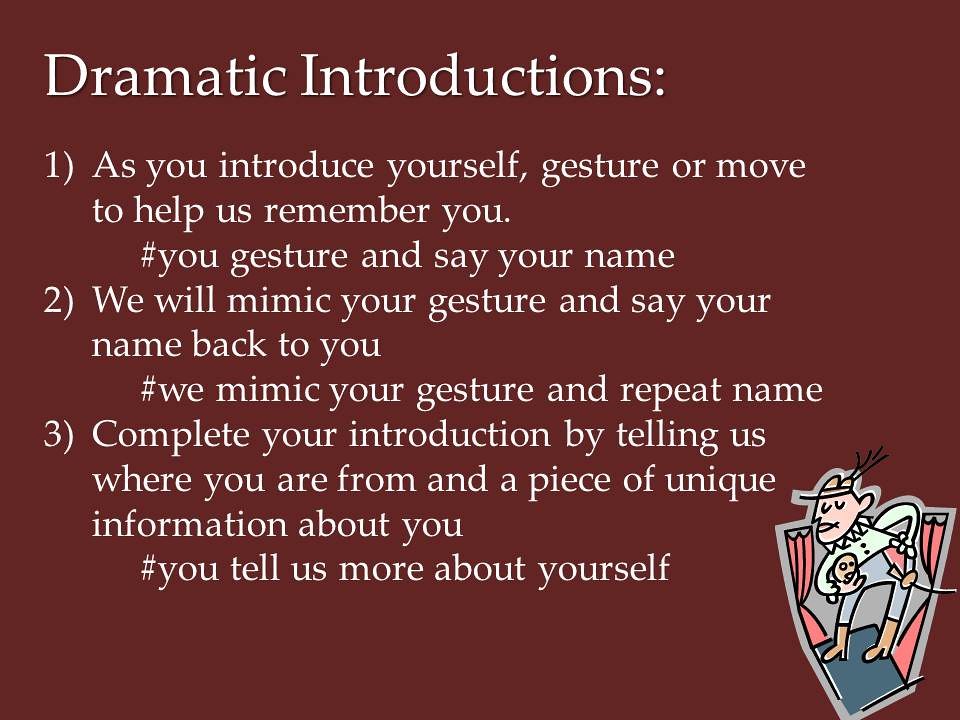Imagine a world where you could communicate with your furry companion effortlessly, where commands are understood with unwavering clarity, and your dog’s behavior is impeccable. While this may sound like a far-fetched dream, teaching your canine friend basic commands can undoubtedly bridge that communication gap and unlock a realm of mutual understanding. Beyond mere obedience, these fundamental instructions serve as a cornerstone for a harmonious relationship, promising to transform the way you interact with your four-legged companion. Whether you’re a seasoned dog owner or welcoming a new furry member into your family, knowing the basic commands is indispensable. So, let’s embark on a journey to unravel the essential commands every dog should know, guiding you and your loyal sidekick toward a lifetime of harmony and cooperation.
Table of Contents
- Introduction: The Importance of Teaching Basic Commands to Your Dog
- Understanding the Fundamentals: Key Commands Every Dog Should Learn
- Building a Strong Foundation: Step-by-Step Training Techniques for Basic Commands
- Mastering the Basics: Tips and Tricks for Effective Command Training
- Taking It to the Next Level: Advanced Commands to Enhance Your Dog’s Skills and Discipline
- Q&A
- Final Thoughts

Introduction: The Importance of Teaching Basic Commands to Your Dog
Teaching basic commands to your dog is not just about impressing friends with cute tricks, but rather an essential foundation for a well-behaved and happy canine companion. These commands provide structure, clarity, and effective communication between you and your furry friend.
By teaching your dog basic commands, you establish yourself as a leader and develop a strong bond built on trust and respect. Furthermore, these commands ensure their safety in various situations, allowing you to keep them out of harm’s way.
Imagine confidently taking your dog for a leisurely stroll in the park as they flawlessly respond to your commands, such as “sit,” “stay,” or ”heel.” Not only will this make your daily routine easier, but it will also make your dog more enjoyable to be around, both at home and in public.
- Sit: This command is the cornerstone of obedience training and teaches your dog to sit still on command. It’s incredibly useful in various situations, like before crossing a street or when meeting new people.
- Stay: By teaching your dog to stay, you ensure their safety and prevent them from running off into potentially dangerous situations. It also helps with controlling their impulse to chase after squirrels or other distractions.
- Heel: The heel command teaches your dog to walk politely beside you without pulling on the leash. This not only makes your walks more enjoyable but also prevents your furry friend from dragging you around and potentially causing accidents.
Mastering these basic commands takes time, patience, and consistency, but the rewards are immeasurable. Not only will it enhance your dog’s behavior, but it will also strengthen the bond you share, making every interaction a joy for both of you.

Understanding the Fundamentals: Key Commands Every Dog Should Learn
Owning a dog comes with great responsibility and a strong bond. One of the foundations of a well-trained and happy pooch is teaching them key commands. These commands not only make your life easier but also ensure your furry friend’s safety and well-being. Let’s dive into some essential commands that every dog should learn:
- Sit: Teaching your dog to sit is an invaluable command. This basic cue establishes control and helps prevent jumping and running off. Start by holding a treat close to their nose and slowly move it up, causing their bottom to lower. Once they are in the seated position, reward them instantly.
- Stay: A reliable “stay” command can keep your dog out of harm’s way. Begin by having your dog sit, then open your palm towards them and firmly say “stay.” Step backward while maintaining eye contact and reward them for staying put. Gradually increase the distance and duration of the “stay” as they become proficient.
- Come: A recall command is crucial for any dog owner. Practice by kneeling down, calling your pup’s name followed by a cheerful “come.” Use treats or toys to entice them towards you and reward them for a successful approach. This command builds trust and is indispensable during off-leash situations.
Mastering these fundamentals commands will create a well-behaved and obedient companion. Consistency and positive reinforcement are vital, so make training sessions enjoyable for your furry pal. Remember, patience and persistence are key, and with practice, your dog will become a pro at these essential commands.

Building a Strong Foundation: Step-by-Step Training Techniques for Basic Commands
Training your furry friend can be a rewarding experience that strengthens your bond and creates a well-behaved companion. To build a strong foundation, it is essential to start with basic commands. Here, we present step-by-step training techniques that will guide you in teaching your dog these fundamental commands:
- Sit: Begin by holding a treat close to your dog’s nose and slowly raise it above their head. As their nose follows the treat, their bottom will naturally lower into a sitting position. Once their bottom touches the ground, reward them with the treat and verbal praise.
- Stay: Start with your dog in a sitting position. With an open palm towards their face, take a step back and say “stay” in a calm but firm voice. Reward them with a treat and praise if they remain in place. Gradually increase the distance and duration of the stay, always reinforcing the command positively.
- Come: Have your dog on a long leash, say their name followed by “come” while gently tugging the leash towards you. When they reach you, reward them with treats and lavish praise. Practice in different environments to strengthen their recall.
Remember, patience and consistency are key when training your dog. Each dog is unique and may require more time or different techniques. Incorporating positive reinforcement, such as treats and verbal praise, will encourage them to learn and respond to your commands. With these step-by-step training techniques, you can lay a solid foundation for your dog’s obedience journey.
Mastering the Basics: Tips and Tricks for Effective Command Training
In the world of command training, it’s crucial to have a strong foundation of skills that will set you up for success. Whether you are a seasoned commander or just starting your journey in leadership, mastering the basics is essential. Here are some valuable tips and tricks to enhance your command training:
- Lead by example: Effective leaders are those who practice what they preach. By setting a high standard of behavior and work ethic, you inspire your team to follow suit.
- Clear communication: Communication is key in any successful command operation. Clearly convey expectations, provide direction, and foster an open-door policy to ensure effective dialogue among your team.
- Embrace continuous learning: The best leaders are always seeking new knowledge and refining their skills. Take advantage of training opportunities, attend seminars, and engage with mentors to stay ahead of the curve.
- Encourage teamwork: Building a cohesive and collaborative team is vital. Foster an environment that promotes trust and cooperation, where each member feels valued and motivated to contribute their best.
By mastering these basics, you’ll lay a solid groundwork for effective command training. Remember, leadership is an ongoing journey that requires dedication and constant self-improvement. Practice these tips and tricks, and watch your command skills flourish!
Taking It to the Next Level: Advanced Commands to Enhance Your Dog’s Skills and Discipline
Once your furry friend has mastered the basic commands, it’s time to elevate their training to the next level. These advanced commands will not only enhance your dog’s skills but also strengthen their discipline and deepen the bond between both of you.
1. The Perfect Fetch: Teach your dog to retrieve objects with precision and finesse. Start by introducing a specific item, such as a ball or a favorite toy. Use the “fetch” command while throwing the object a short distance away. Gradually increase the distance, making sure your dog delivers the item directly to your hand upon return. This command not only provides mental stimulation but also improves your dog’s obedience and focus.
2. Extended Stay: Take your dog’s patience to the next level by teaching them the “stay” command for extended periods. Begin with short durations and gradually increase the time your dog remains in the “stay” position, rewarding them with praise and treats for their impeccable self-control. This command is especially useful in situations that require your dog to remain calm, such as when guests arrive or during vet visits.
3. Advanced Agility: Challenge your dog’s physical abilities and mental acuity with advanced agility training. Set up obstacle courses with hurdles, tunnels, and weave poles. Teach your dog to navigate these courses using commands like “jump,” ”tunnel,” and ”weave.” Not only will this exercise keep your dog physically fit, but it will also strengthen their problem-solving skills and improve their overall coordination.
Mastering these advanced commands will undoubtedly take your dog’s training to new heights. Remember to be patient, use positive reinforcement, and celebrate each small achievement along the way. Together, you and your canine companion can conquer any challenge and continue to grow as a team!
Q&A
What are the basic commands every dog should know?
Dogs should be familiar with commands such as sit, stay, come, lie down, and leave it. These commands are not only useful for daily obedience, but they also help in building a strong bond between the dog and its owner.
Why is it important for dogs to learn these commands?
Learning basic commands enhances a dog’s safety and enables better control in various situations. These commands are vital for managing behavior, preventing accidents, and ensuring a dog’s well-being while out in public or in the home.
How can I teach my dog these commands?
Start by using positive reinforcement techniques like treats and praise when teaching commands. Use a clear and consistent voice command paired with a specific hand signal. Regular, short training sessions can effectively teach these basic commands over time.
What challenges might I encounter while training my dog?
Every dog is unique, and some may show resistance or struggle with specific commands. Some common challenges include distractions, lack of focus, or even fear. Patience, consistency, and understanding are key in overcoming these challenges and adapting training techniques to suit your dog’s individual needs.
How often should I practice these commands with my dog?
Consistency is key when it comes to training. Aim for short and frequent training sessions, ideally 5-10 minutes, multiple times a day. Practice in different environments to ensure your dog can follow commands regardless of distractions.
Can I train an older dog to learn these commands?
Absolutely! While it may take a bit more time and patience, older dogs can definitely learn basic commands. The key is to use positive reinforcement, be patient with their progress, and tailor the training to suit their abilities. Remember, it’s never too late to teach an old dog new tricks!
Are there any additional commands that might be useful for my dog to learn?
Beyond the basics, commands like “drop it,” “wait,” and “heel” can be valuable in certain situations. Additionally, teaching tricks such as “roll over” or “shake hands” provides mental stimulation and strengthens the bond between you and your furry companion.
Final Thoughts
In conclusion, dear fellow dog enthusiasts, we have embarked on a journey to explore the fundamental principles of dog training. We have delved into the realm of commands, unveiling a vibrant tapestry of communication between our faithful companions and ourselves. From the glorious moment when Fido eagerly responds to your call, to the heartwarming sight of Rover sitting obediently by your side, we have glimpsed into the magical realm of canine understanding.
We hope that this exploration of basic commands has not only deepened your bond with your furry friend, but also instilled within you a sense of awe and admiration for the wonders of doggy comprehension. Remember, behind every successful command lies patience, consistency, and undying love. Together, let us strive to unlock the latent potential in our canine companions, helping them reach new heights of obedience, contentment, and mutual understanding.
So, whether you are just beginning your journey as a proud pup parent or you have been sharing your life with four-legged friends for decades, remember that the power of a well-executed command knows no bounds. Embrace the adventure of training, savor every wag of the tail, and relish in witnessing the extraordinary transformation of your loyal canine confidant.
As we bid farewell, we extend our sincerest hopes that this humble exploration into the realm of basic commands has provided you with a solid foundation to embark upon your training adventures. May you and your four-legged companions continue to conquer new frontiers, nurture unbreakable bonds, and create countless memories of sheer joy and unspoken understanding. Happy training, dear dog lovers, and may the harmony between human and hound ever flourish!
As an affiliate, my content may feature links to products I personally use and recommend. By taking action, like subscribing or making a purchase, you’ll be supporting my work and fueling my taco cravings at the same time. Win-win, right?
Want to read more? Check out our Affiliate Disclosure page.